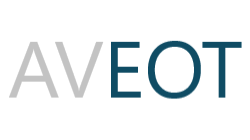In most cases, the long-term goals of employee-owned businesses will focus on being commercial and successful, but should maintaining shareholder value continue to be a primary objective? There are significant reasons why a focus on increasing shareholder value might not be optimal in an employee-owned business, in fact, it might be more beneficial to downplay or even disregard this aspect. We believe there are five material reasons to support this stance, which all centre on the fact that employee-owned businesses may not resell well in the future and therefore this should not be the primary goal of the strategic business plan going forward.
1. The buy-out to transition: Many employee-owned businesses are vendor-led buyouts structured to secure 0% Capital Gains Tax (“CGT”) at full commercial value. This setup usually involves loan notes being paid to the sellers over a long period. This automatically creates a barrier to a possible resale within the first 5-10 years as these loans would typically need to be repaid in full prior to or as part of any resale.
2. Tax: The 0% CGT break that the sellers benefit from through the initial EOT sale requires the company to qualify as an EOT for two years from the end of the tax year in which the business is sold to the trust. This means that for this qualifying period, the sellers will insist on having the right of veto concerning any potential sale. Once this qualifying period has expired, the CGT passes to the trustees of the EOT and therefore a sale could take place without impacting on the 0% CGT break the sellers achieved. After this period the EOT will take over the ‘base’ cost of the shares in the company from the sellers. This could be at the nominal amount paid for the shares on the incorporation of the company which could mean the whole of the increase in value of the company since inception is taxed as a chargeable capital gain at the prevailing rate on a resale. After the payment of CGT and the initial seller buy-out, any proceeds left from the company sale will be distributed as PAYE income to qualifying employees. This is because most EOTs are ‘indirect’ trusts and as such, there are no actual shareholders, just employee beneficiaries, therefore the proceeds will usually be treated as income subject to Income Tax and National Insurance. With a double charge of CGT and PAYE, this significantly discourages resales.
3. The original EOT driver: Many businesses explore employee ownership as a succession route when they are unsuitable for trade or an investment sale. If a company was challenged in securing a trade or investment sale before the EOT transition, why would it be more desirable to resell as an EOT later? Many sellers also want to secure a local legacy through a ‘letter of wishes’, and resales can contradict this.
4. The Trustees: Neither ex-sellers nor employees can control whether a business will be resold. The ultimate decision is with the trustees, whose responsibility is to ensure that any resale benefits the employees and the organisation. Short-term financial gains from a resale might not align with long-term employee welfare and stability.
5. Culture: Employee-owned businesses have a unique culture that may not match with potential buyers in the future. Transitioning from an employee-owned culture to a corporate one could create tension and impact talent retention. Additionally, once proceeds from a sale are distributed equally amongst qualifying employees, this could lead to a drain on talent if the post-tax proceeds are sufficient for an employee to take a break, or career change.














